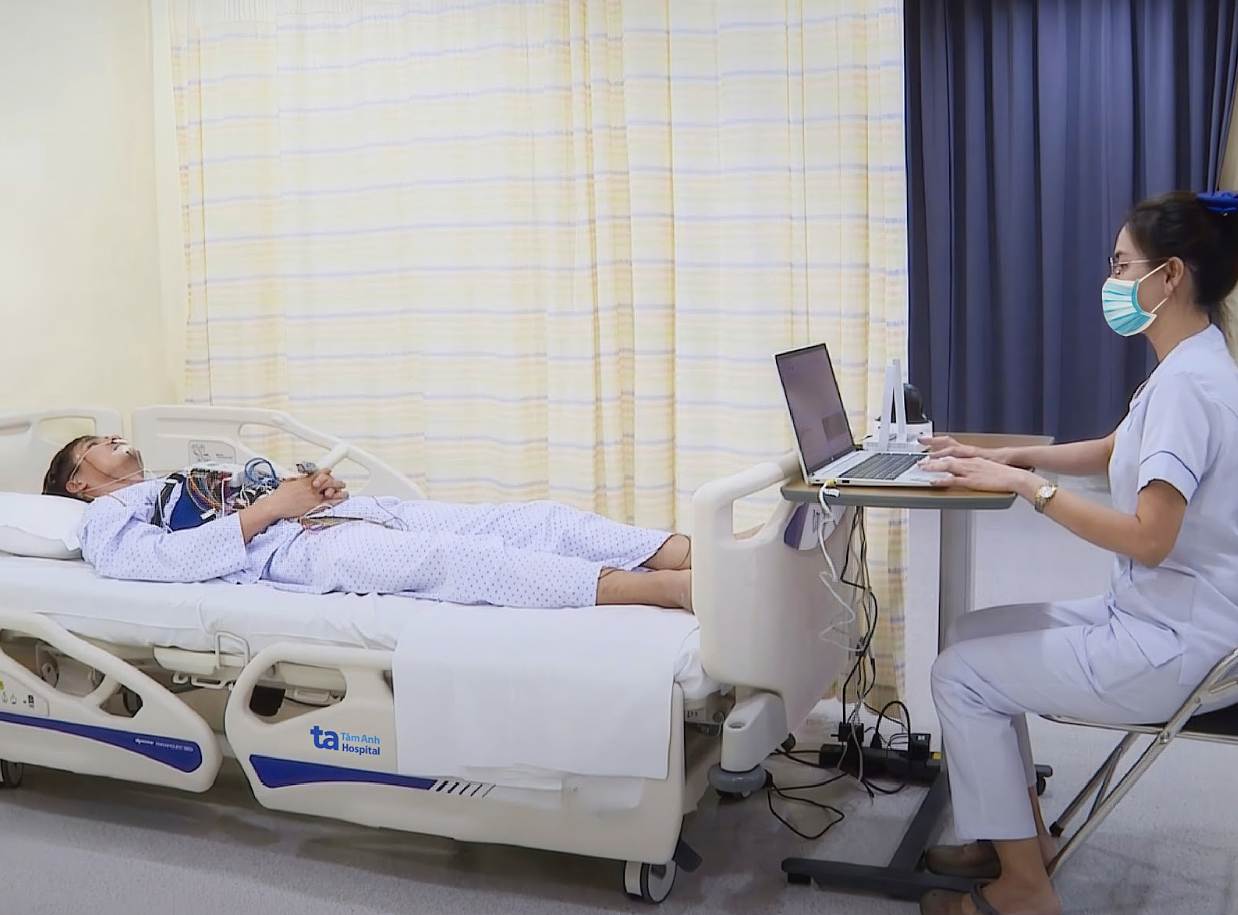Dr. Nguyen Huu Khanh from the Neuroscience Center at Tam Anh General Hospital in Ho Chi Minh City, explains that the adult brain needs an average of 7-9 hours of sleep per night to eliminate toxins, regenerate connections, and consolidate memory. Consistently sleeping less or more than this amount can be detrimental to health.
Some people habitually stay up late during the week and then sleep in on weekends. This can make it harder to fall asleep the following night, disrupting their circadian rhythm and potentially leading to sleep disorders. While extra sleep on rest days can help the body recover somewhat, it shouldn't extend into late morning. Excessive sleep can slow down other bodily functions, including metabolism, which, if prolonged, weakens the immune system, causing fatigue and lethargy. Oversleeping can also disrupt the neurotransmitter serotonin, reducing blood flow and oxygen to the brain, potentially triggering headaches or migraines.
 |
A medical professional conducts a polysomnography on a man. Photo: Tam Anh General Hospital |
A medical professional conducts a polysomnography on a man. Photo: Tam Anh General Hospital
After prolonged sleep, some people feel sluggish, mentally slow, and have slower reflexes. Excessive sleep can accelerate the aging of the nervous system, impacting memory and concentration.
Dr. Khanh notes that besides lifestyle habits, unusual amounts of sleep can be linked to conditions like depression, anxiety disorders, sleep apnea, respiratory illnesses, or endocrine disorders. Adults who consistently sleep more than 9 hours per night but still experience daytime sleepiness should consult a neurologist to determine the cause.
In addition to a physical examination, doctors may recommend a polysomnography to assess sleep quality and detect neurological or respiratory disorders that cause disturbances such as narcolepsy, nocturnal epilepsy, or sleepwalking. This non-invasive method is suitable for children, the elderly, and pregnant women.
To maintain brain health, Dr. Khanh recommends establishing a healthy work-life balance, maintaining consistent sleep and wake times, varying no more than an hour from the usual schedule. After waking up, it's beneficial to get some sunlight and engage in light exercise to quickly stabilize the circadian clock. Limiting coffee and alcohol in the evening and turning off electronic devices at least 30 minutes before bed can also improve sleep quality.
Phuong Thy
| Readers can submit questions about neurological conditions here for doctors to answer. |












